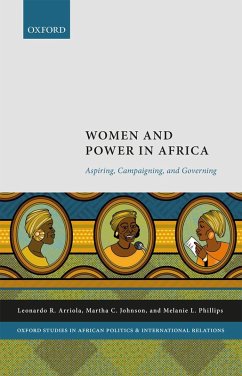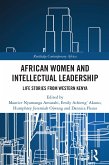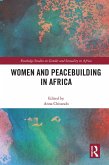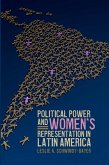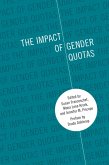Women and Power in Africa: Aspiring, Campaigning, and Governing examines women's experiences in African politics as aspirants to public office, as candidates in election campaigns, and as elected representatives. Part I evaluates women's efforts to become party candidates in four African countries: Benin, Ghana, Malawi, and Zambia. The chapters draw on a variety of methods, including extensive interviews with women candidates, to describe and assess the barriers confronted when women seek to enter politics. The chapters help explain why women remain underrepresented as candidates for office, particularly in countries without gender-based quotas, by emphasizing the impact of financial constraints, fears of violence, and resistance among party leaders. Part II turns to women's experiences as candidates during elections in Kenya and Ghana. One chapter provides an in-depth account of a woman's presidential bid in Kenya, demonstrating how gendered ethnicity undermined her candidacy, and another chapter presents a novel evaluation of the media's coverage of women candidates in Ghana. Part III turns to women as legislators in Namibia, Uganda, and Burkina Faso, asking whether women engage in substantive representation on gendered policy issues once in office. The chapters challenge the assumption that a critical mass of women is necessary or sufficient to achieve substantive representation. Taken together, the book's chapters problematize existing hypotheses regarding women in political power, drawing on understudied countries and variety of empirical methods. By following political pathways from entry to governance, the book uncovers how gendered experiences early in the political process shape what is possible for women once they attain political power. Oxford Studies in African Politics and International Relations is a series for scholars and students working on African politics and International Relations and related disciplines. Volumes concentrate on contemporary developments in African political science, political economy, and International Relations, such as electoral politics, democratization, decentralization, the political impact of natural resources, the dynamics and consequences of conflict, and the nature of the continent's engagement with the East and West. Comparative and mixed methods work is particularly encouraged. Case studies are welcomed but should demonstrate the broader theoretical and empirical implications of the study and its wider relevance to contemporary debates. The series focuses on sub-Saharan Africa, although proposals that explain how the region engages with North Africa and other parts of the world are of interest. Series Editors: Nic Cheeseman, Professor of Democracy and International Development, University of Birmingham; and Ricardo Soares de Oliveira, Professor of the International Politics of Africa, University of Oxford.
Dieser Download kann aus rechtlichen Gründen nur mit Rechnungsadresse in A, B, BG, CY, CZ, D, DK, EW, E, FIN, F, GR, HR, H, IRL, I, LT, L, LR, M, NL, PL, P, R, S, SLO, SK ausgeliefert werden.

